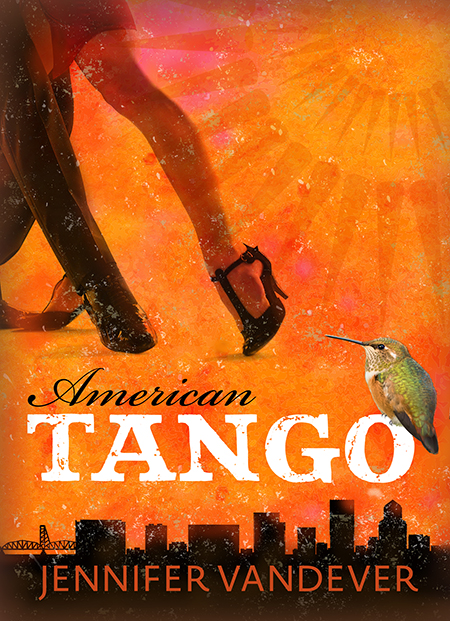ELA Faculty Member Jennifer Vandever Releases New Novel
Long-time Emerson College Los Angeles (ELA) faculty member Jennifer Vandever will release her second novel, American Tango, on June 15. American Tango tells the story of Rosalind Plumley, a 30-something artist in Portland, Oregon whose output has dwindled to decorative paintings of hummingbirds for an upscale children’s boutique. Married to a depressed, blocked writer, Plumley takes a tango class that leads her on an unexpected journey as she discovers the surprising path of her own desires and a new understanding of her family’s complicated history.
1. What inspired you to write this novel?
I started writing American Tango in 2008, inspired, like my main character by an article in the New York Times travel section about Americans living in Argentina. I remember thinking how cool it would be to just pick up and move to Buenos Aires, envisioning some romantic, idealized version of my life… and then very quickly thinking, “nope, I'm in my 30s now, it's too late for that kind of thing.”
I began thinking about how we start closing doors to experiences based on age or fears and beliefs about who we are and what's “allowed.” A character started to form in my mind: a rocky marriage, unfulfilled dreams, fertility issues, aging parents—a lot of the things we confront as we enter the age of “grown-up” problems. I was also visiting my hometown of Portland a lot (caregiving for my own aging parents) and finding rich material for satire (pre-Portlandia). A novel about the challenges and comedy of modern life took shape.
2. You’ve taught courses on screenwriting, screwball and romantic comedy, and women in film at ELA. How much of what you teach (or have taught) in the classroom helped to inform or even influence the novel?
There’s always some kind of bleed, absolutely. On some level, everything is screwball comedy to me (even if, sadly, it doesn’t always feature Cary Grant). Life even at its most serious is often incredibly absurd; I’m always looking for ways to show how these elements exist side by side.

Cover for American Tango.
3. A tango class is the catalyst that leads the novel’s main character on an unforeseen journey. The word tango conjures up images of a passionate, vibrant—even dramatic—dance. Why did you decide to title your novel American Tango?
The title and subject matter sort of chose me. After I saw that article, I started taking tango classes around Los Angeles (an interesting sociological experience in itself!) and that helped form the narrative. There’s an old cliché that tango is “a sad thought danced.” That’s a bit simplistic, of course, but it was somewhat true in the writing of this in that my main character is emotionally blocked. She’s stuck—in her marriage, her art, her family, her work—and that “stuckness” comes in part from unexpressed grief she hasn’t come to terms with. Tango becomes a way for her to reconnect to an emotional life she’s trying to suppress; the dance, in some mysterious way, helps her unpack what’s really going on under the surface.
4. Your debut novel, The Brontë Project, is an irreverent and comic look at loss, love, literature, and pop culture as well as a guide to reconciling the mythology of romance with the reality of modern love. American Tango is described as a comic novel about men and women, love and loss, regaining passion, and of course, the tango. Similar themes pop up in both novels. What appeals to you about writing about loss and love in a comic way?
Love and loss, the two go hand in hand, don’t they? There’s a beautiful line from poet and novelist Rainer Maria Rilke: “Even in the most-coming wind we breathe parting.” We will all lose each other in one way or another, sometimes temporarily, sometimes for good; this is an unbearably sad truth of living and if you don’t have a sense of humor—at least some of the time—you’ll lose your mind. Humor informs even the more serious passages of my writing because—and this is my experience of life as well—the two so often co-exist. Life is dead serious and deeply funny, quite often at the same time.
5. What is one piece of advice you have for students who might want to write a novel one day?
Be patient and gentle with yourself. Be prepared to spend whole days or weeks (or months or years) thinking you’re crazy and wasting your time. Writing a novel is, when you think about it, a pretty bizarre way to spend your time but if you’re committed it can actually be pleasurable. People have this vision of tortured novelists, which I guess is sometimes the case, but the thing that’s rarely reported is that swimming inside a novel that’s still just inside your head and your computer or a pad of paper can sometimes be really, deeply pleasurable.
Categories